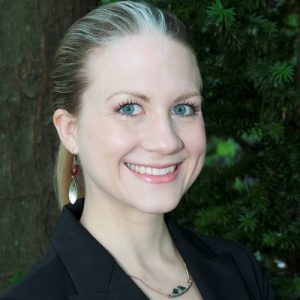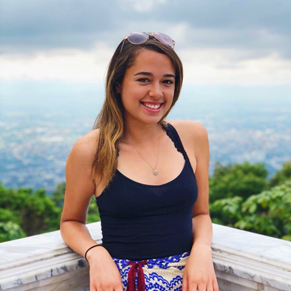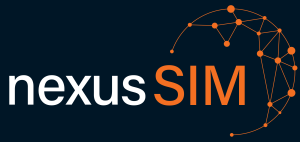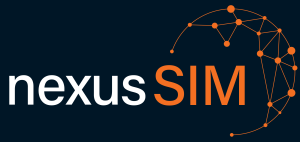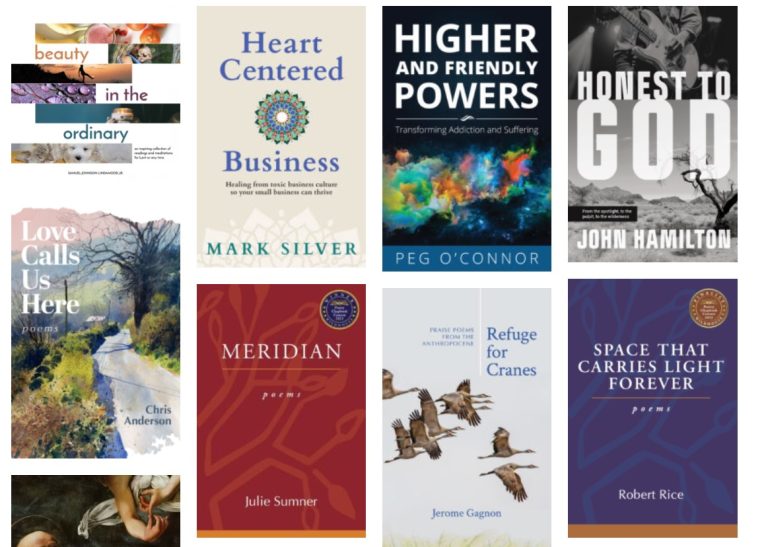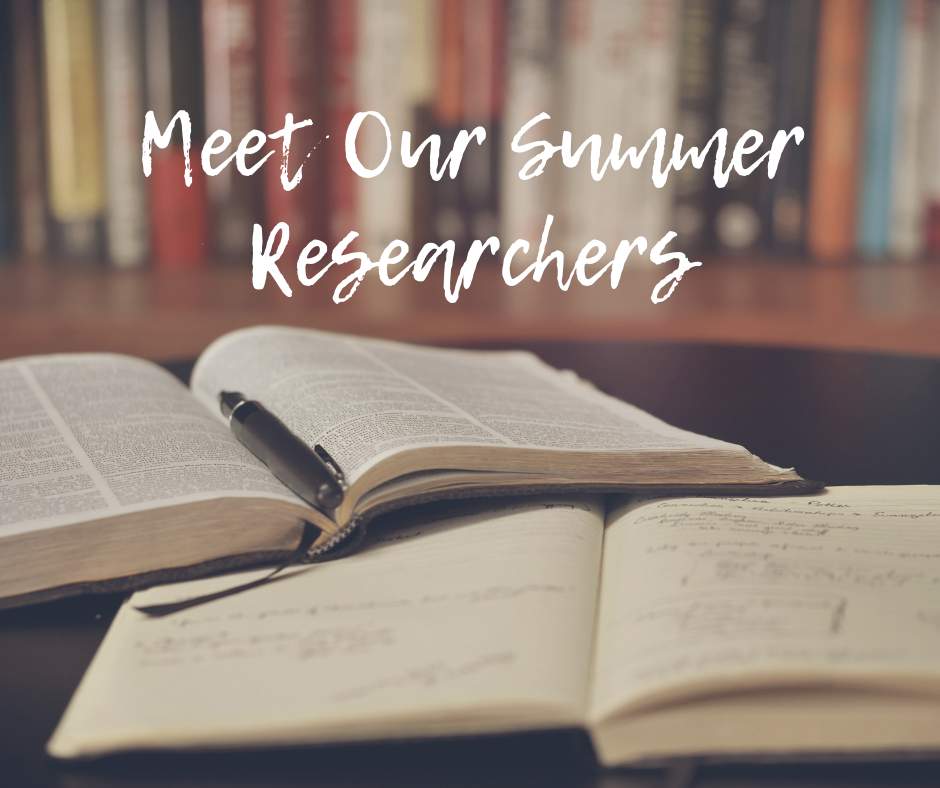
Our three summer researchers are hard at work on various projects. Learn more about the research they’re working on, the impacts it could have, and what our researchers like to do outside of CMAC!
Kate Stockly is a PhD student in Science, Philosophy, and Religion at Boston University.
What research are you doing at CMAC over the summer? As a doctoral fellow at CMAC, I am working this summer with CMAC Executive Director Wesley J. Wildman to finish our book manuscript, Spirit Tech: The Brave New World of Technology-Assisted Spirituality. The book surveys and evaluates eight categories of brain-based technologies currently being employed for spiritual enhancement, and considers how the future of spiritual experiences and religious groups may look as these technologies continue to advance. The technological applications are as diverse as neurofeedback-guided meditation retreats, transcranial magnetic stimulation for the development of paranormal skills, and church services held in virtual reality. With a journalistic style, Dr. Wildman and I tell the stories of innovators, thought leaders, and regular people whose lives have been changed by the technologies.
What potential impacts do you see from this work in the future? We hope that our voices as scholars of religion will provide a helpful perspective as these technologies become more mainstream. I see the research impacting 1) folks who are curious about the effects of technological innovations on our culture and the future of religion and spirituality in the US; and 2) people who are interested in incorporating brain-based technologies into their spiritual lives and have questions about reliability and safety of these technologies.
What initially brought you to CMAC? I find not only the breadth of complex issues taken up by CMAC researchers, but also the depth of the methods and approaches employed at CMAC tremendously exciting and inspiring. While working with Dr. Wildman at Boston University, I became familiar with CMAC’s work and vision and knew it was the perfect place to explore topics that require interdisciplinary, critical thinking, innovative methods, and, most importantly, teamwork. And I was right: my interest in studying contemporary religious and spiritual movements (including those that involve exciting new technologies!) with an approach that marries that social sciences, like sociology, with the natural sciences, like neuroscience, is encouraged and supported at CMAC.
What do you like to do in your free time? I love to do yoga. I’m currently working on stabilizing my scorpion pose! And I can often be spotted jogging around town with my goldendoodle, Fitz.
Allana Radel is an undergraduate student at Boston University studying Health Science and Public Health.
What research are you doing at CMAC over the summer? I’m working primarily on the STARS-Montana project, which is focused on researching suicidal ideation and prevention methods to combat high suicide rates in rural Montana. Rural Montana has often had the highest suicide rate in the USA, and in response the state government has invested in data collection in an effort to identify concrete mitigating factors and treatment options for suicidal ideation that can impact policy and save lives. My work consists of finalizing background research, conceptual model building, and learning more in-depth about how to build and fund a large scale research project.
What potential impacts do you see from this work in the future? The primary goal of this project is to decrease suicide rates in the state of Montana. At its peak, I see this project creating a strong foundation of research and policy suggestions that will aid the state in reducing the prevalence of suicide. This project also has the potential to create more productive conversation about suicide risk in areas of the country that neglect their mental health. My personal hope is that over time the STARS-Montana project can generate a far reaching impact that will improve mental health and suicide prevention in America’s most rural areas.
What initially brought you to CMAC? As an undergrad at BU, I came to CMAC through the work-study program in Fall 2018 and have been here since! I had never come across a research organization with a mission like CMAC’s and was immediately interested in getting myself involved with their work. My time as a research assistant has been extremely eye opening, and over the past year it has helped me pursue my interests and develop new passions.
What do you like to do in your free time? In my free time I can be found exploring outdoor markets, traveling to visit friends and family, volunteering around Boston, and often enjoying a new book. This summer I’ve challenged myself to read a new book each week, and have not only tackled that goal so far, but also found some great new places to read around the city in the process!
Lindsey Smith is a master’s candidate in Theological Studies at Harvard Divinity School studying religion, ethics, and politics.
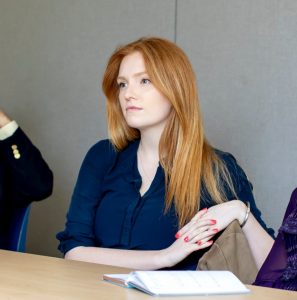
What research are you doing at CMAC over the summer? This summer at CMAC, I have been assisting Connor Wood with research projects relating to two primary conceptual categories: 1) Examining processes of cooperation and defection in religious communities, combining general bio-cultural approaches with agent-based modeling systems and 2) Exploring the nexus of neuroscience, imitation, synchrony, social norms and ritual.
What potential impacts do you see from this work in the future? I think this research is groundbreaking, and bears significant potential for bridging informational and methodological gaps between the social sciences, cognitive sciences, and technology. In the future, I hope that this type of interdisciplinary will become more of a focus in each of the aforementioned categories, and that professionals in each of these fields will continue to incorporate methodologically non-traditional research methods into their work.
What initially brought you to CMAC? My friend had sent me an article about CMAC’s work and told me that it sounded like something I would be interested in. Of course, it was, and I reached out to see whether or not they had any available positions for graduate research assistants.
What do you like to do in your free time? I enjoy cooking, weight-lifting, and finding new and exciting restaurants to eat at in Boston and Cambridge!
Written by Nicole Smith, Admin & Communications Coordinator. July 26, 2019.

